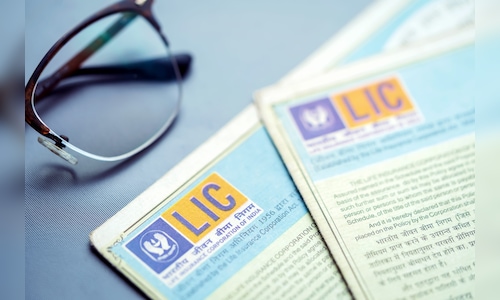[ad_1]
After extensive deliberations and multiple rounds of consultation between the IRDAI and the life insurance industry, the insurance regulator issued the final surrender value guidelines in June 2024.
These guidelines increase the surrender value to nearly 70-75% of the premium, up from around 30%.
The surrender value is the amount a life insurer must refund to policyholders in the event of early surrender of policies.
According to sources, LIC has requested a review of the surrender value regulations, specifically seeking changes in the method used to calculate the surrender value.
How is surrender value calculated?
To understand how surrender value is calculated, let’s consider an example of a 10-year life insurance policy with a sum assured of ₹1 lakh and an annual premium of ₹10,000.
At maturity, the policyholder will receive ₹1.5 lakh, which includes a ₹50,000 bonus.
With the 10-year government security (G-Sec) yield at around 7% and a 50 basis point (BPS) cushion over it (provided by IRDAI), if the policy is surrendered after the payment of the first premium, the calculation would be as follows:
What will be the paid-up sum assured?
What Will Be Paid-up Sum Assured?
No Of Premiums Paid
_____________________ X Policy Returns Upon Maturity
Amount Of Premium Paid
1
_____ X 1,00,000 = 10,000
10,000
Present Value Of Paid-up Sum Assured= ₹10,000 + ₹5,000 (Bonus)= ₹15,000
What will be paid-up future benefits?
Discounting Of No Of Years For Which Premium Is Outstanding Post Surrender At 10-yr G-Sec Rate
15,000
__________ = ₹7,823 (Special Surrender Value)
(1.075)9
The IRDAI has included a provision for a 50 BPS cushion over the 10-year G-Sec yield for calculating the surrender value.
LIC has requested that the insurance regulator increase this cushion or spread, which currently stands at 50 BPS.
Another significant request from LIC is not to hardwire the 10-year G-Sec yield into the calculation of Surrender Value. Instead, LIC has proposed plan-based benchmarking rather than using a fixed interest rate benchmark like the 10-year G-Sec yield.
This is an important request, as nearly 70% of life insurance investments in government securities are in 30-year instruments.
Currently, the 10-year G-Sec trades at 6.86%, while the 30-year G-Sec trades at 7.1%.
Benchmarking the Surrender Value calculations against the 30-year G-Sec rate would naturally reduce the surrender value paid by life insurance companies to their policyholders.
[ad_2]
Source link










